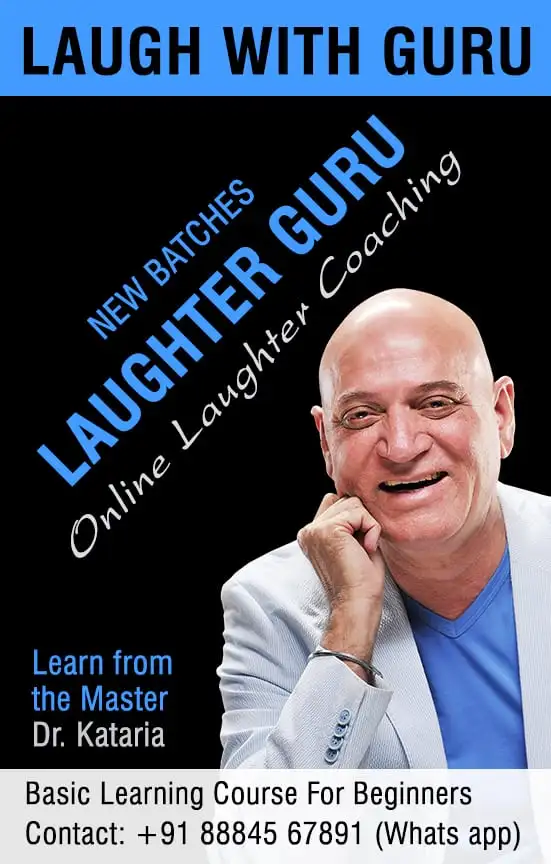
Daniele Berti, Italy: In high school I was convinced that the best thing while dealing with politics is to be happy and produce happiness, but when I tried to do it, I realized it was not possible because you had to accept to work for someone and their interests. I thought maybe if I promoted a feeling of comfort, it might be an ideal instrument to provide that state of happiness, but after some time I had to change my mind.
Finally, about eight years ago I discovered the Yoga of Laughter which changed my life significantly and I realized that one can learn to laugh and be happy even without a reason. In fact, I have not just learned to be happy myself; I also learn to teach people to be happy.
True happiness according to Aristotle and Psychologist Martin Seligman is a consolidated state of mind that once conquered will not abandon us never again. To understand what is happiness, I have to make the comparison with its opposite, which is depression: a state that characterizes defeats, failures and disasters faced by people one after another and who have lost all confidence in their ability and competence to face the trials of life. On the contrary, happiness is to live in the awareness that “your whole destiny is in your hands” and only you have the power to decide what to do with your life, so when you have reached this awareness you cannot lose it more, you may choose to be happy and your life will change extraordinarily.
Being happy is not to deny emotions, but learning to recognize and transforming them from an obstacle to a better tool for living. Learning to be happy means learning to know each other deeply and living in a state of profound joy and gratitude for the universe that hosts your life. Being happy does not mean living passively to tragedies and injustices; instaed the state gives you the reasons and strength to face them and overcome them. In short, learn to be happy does not mean not caring about what happens around you, but learning to deal with it in the most effective and only when you realize that everything is up to you, you may understand how important are compassion, participation, sharing and cooperation.
Happiness measured according to neuroscience is a state of mind constructed by incorporating and consolidating 4 “simple” modes of behavior:
1) Living in the here and now (bring up the past will not allow you to change it and thinking of the future takes away time to your ability to act in the present)
2) Be yourself and love yourself. To be happy you do not have to be like someone else but you have to recognize your capabilities and your limitations, only then you can use them in a better way
3) You have to free yourself from the mechanisms of judgment and prejudice (judgment and prejudice limit your chances of experience and only experience gives you the knowledge)
4) Fully and freely you have to take your responsibility about choices you make in life and do not blame anyone else for them.
And if you practice these modes of behavior you become aware that the “uniqueness” of every human being is just what makes us all “equal” and so brings you to act with a sense of compassion, participation, sharing and cooperation that give rise to response skills even more efficient.
The first thing I did when I realized that the only thing to do to be happy is to learn to be happy, I looked for a school where you can find those tools that would allow me 1) to improve and consolidate what basically was my state 2) and would also allow me to teach those who wished to become happy, what to do to learn to be happy.
I attended a three-year course of counseling and also attended several other training courses all aimed at personal improvement, but the most important of all, what has crowned this training was Laughter Yoga. I became Certified Laughter Yoga Leader and the first thing that struck me most deeply in my training was that my creative thought processes were greatly enhanced and were completely unexpected. It was really fun. In Laughter Yoga all aspects of knowledge, all thoughts and all theories are a simple accessory sophisticated and unnecessary: it is very difficult to learn happiness in books and much easier with this practice.
Laughter Yoga makes simple the practice of happiness even in the stressful and stressed world we live in today. We use a lot of time and money to learn, do and buy a lot of things which invariably make us more and more stressed. But we not take into account the fact that everything depends on our mind. If you want to be happy, the only thing we can do is to train our mind to be happy, and the easiest and most efficient way to learn to be happy is by regularly practicing Laughter Yoga.
Laughter Yoga helps you to live in the present be yourself, forget your prejudices and judgments and take responsibility for what you do, thereby leading you to a state of happiness. I conduct laughter sessions twice a week and have seen many lives change: someone’s shyness has disappeared, someone’s panic attacks are gone and someone has recovered the joy of living.
And I must say that after having learned to be happy, the thing that makes me happier is when I see other people who in turn learn to be happy due to Laughter Yoga in which we laugh for no reason without comics, jokes and sense of humor. So the more you practice Laughter Yoga, you will always find more reasons to be happy. Aristotle said that to learn to be happy enough is just “a little study and a little application”, but Aristotle did not know Laughter Yoga ha ha ha !!!
Daniele Berti
Gestalt Counselor & Happiness Coach
Laugther Yoga Leader & Teacher
daniele@lapalestradellafelicita.com
www.lapalestradellafelicita.com
